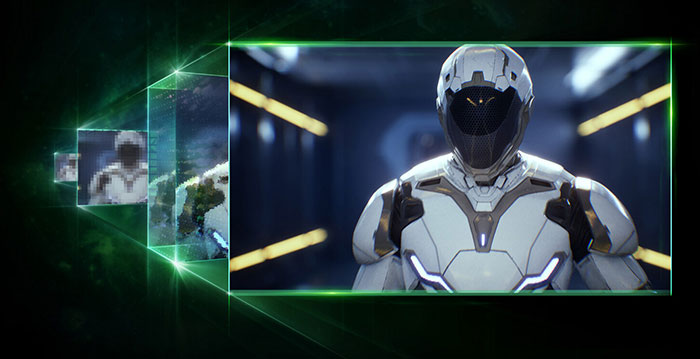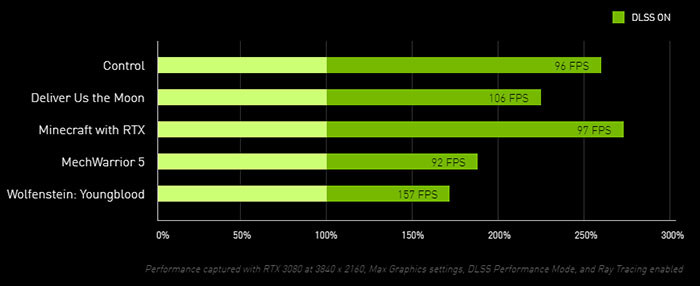Nvidia is updating its DLSS (Deep Learning Super Sampling) technology in time for the availability of the first GeForce RTX 30 series GPUs. The update from DLSS 1.0 to 2.0 earlier this year brought many worthwhile updates to the AI-enhanced super sampling techniques. Since that time enthusiasts, gamers, and the tech press seem to have warmed to DLSS, and it is now expected that AMD will leverage similar technology to help make its RDNA(2) GPUs more competitive.

In a reddit Q&A about the GeForce RTX 30 series last week, Nvidia provided some interesting insights and back-stories with regard to consumer Ampere graphics cards. The Q&A summary is well worth a check and answers questions about VRAM amounts of the various SKUs, RTX 3070 vs RTX 2080 Ti performance, HDMI 2.1 support and more.
In answer to a question about DLSS advanced that might be expected the Nvidia exec said that the DLSS SDK 2.1 update is out now and has three major updates, as follows:
- New ultra performance mode for 8K gaming. Delivers 8K gaming on GeForce RTX 3090 with a new 9x scaling option.
- VR support. DLSS is now supported for VR titles.
- Dynamic resolution support. The input buffer can change dimensions from frame to frame while the output size remains fixed. If the rendering engine supports dynamic resolution, DLSS can be used to perform the required upscale to the display resolution.
On the topic of VR support, the RoadtoVR website reckons DLSS 2.1 "could mean substantially better looking VR games that still achieve the necessary framerate," (of 80 to 90fps). In the case of a high-end HMD like the Valve Index (which supports up to 144Hz), we could see the benefits in significantly reduced latency.

On RTX 30 launch day we were teased by the GeForce RTX 3090 being the world's first 8K 60fps gaming graphics card. The Q&A hints that DLSS 2.1 will leverage an ultra-performance mode to help this feat be realised, using a new 9x scaling option.
The release date for DLSS 2.1 for consumers hasn't been set publicly but it is expected to be implemented in launch drivers for the RTX 30 graphics cards and be compatible with RTX 20 GPUs too.













